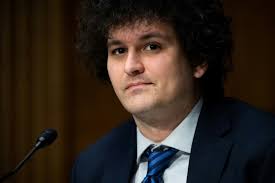Donald Trump considers his alternatives for paying a fine for civil fraud in New York
Donald Trump, the former US president, has not yet obtained a bond to fight a $454 million judgement against him in a civil fraud case brought in New York.
In order to prevent the state from seizing his assets while he challenges Judge Arthur Engoron’s February 16 verdict—which demands that he and the other defendants pay $464 million in fines and interest for misvaluing properties to deceive lenders and insurers—Trump must either provide the required funds or arrange for a bond.

The Republican presidential candidate’s counsel pleaded with an intermediate state appeal court on Monday to halt the verdict’s execution, arguing that the amount sought was excessive.
They revealed that the defendants had attempted to get a bond by contacting thirty surety businesses via four separate brokers.
The Trump legal team said, “Applying an unachievable bond condition as a prerequisite for appeal would cause evident, irrevocable harm to the defendants.”
While the appeal is pending, the defence team recommended that he be allowed to post a $100 million bail. A bonding agency would be in charge of paying the sum if Trump loses the appeal and is determined not to be able to pay.
Trump considers filing for bankruptcy
The former president is allegedly taking into account other financial possibilities in the meantime. Financial experts have suggested that declaring bankruptcy might be a clear way for Trump to get out of his financial bind, but he is reportedly hesitant to follow through on this.
According to Trump’s legal team, he does not have the liquid assets required to get a bond that would prevent the $464 million judgement from being enforced while an appeal is pending. The majority of his fortune is in real estate, and because no bonding business would take it as security, there’s a good chance that New York Attorney General Letitia James may seize his possessions, which include the 40 Wall Street office tower.
Why it is important
Trump’s reputation as a prosperous businessman is strongly linked to his brand and political persona. A bankruptcy filing can damage this image. According to a Washington Post story, he is said to have considered the possible harm to his reputation as a prosperous businessman as well as the consequences of his November presidential campaign against Joe Biden when making his choice.
The circumstances highlight the distinct convergence of business, personal finances, and political strategy, demonstrating the ways in which each sphere influences Trump’s decisions and public opinion.
“He’d rather have Letitia James show up with the sheriff at 40 Wall and make a huge stink about it than say he’s bankrupt,” said a Trump acquaintance. According to the Washington Post analysis, Trump’s emphasis on the political narrative above the financial ramifications of bankruptcy is shown by this viewpoint.
In between the lines
Trump has had six company bankruptcies in the past, mostly related to his forays into the Atlantic City casino sector. He has previously maintained that he never declared personal bankruptcy and justified his choices as calculated actions taken by wise investors.
Regarding the circumstances, bankruptcy lawyer Avi Moshenberg said that if Trump filed now, he could not have to pay anything until after the bankruptcy processes, which might take a long time because of their intricacy. Nevertheless, interest in the ruling would probably keep rising.
Trump spokesperson Steven Cheung recently said that the company plans to continue pursuing legal challenges. “A dishonest Attorney General filed a move to halt the unfair, unconstitutional, and un-American ruling made by New York Judge Arthur Engoron in a political witch hunt. A bond of magnitude would violate the law, go against the core values of our republic, and seriously impair New York’s legal system, according to Cheung.
What’s next? Considering Trump’s present financial situation and the daily interest that is accruing on the judgement, his tight circle of advisors and legal professionals see bankruptcy as a prudent financial alternative.
Trump’s predicament is representative of the intricate relationship that exists between political strategy, financial stability, and personal reputation. Even though he often uses bankruptcy as a weapon in his business dealings, his unwillingness to file for bankruptcy emphasises the significant distinctions between corporate and personal bankruptcy, particularly when prominent figures are involved. In this case, Trump’s choices will demonstrate his objectives and maybe provide guidelines for navigating financial hardship in the political sphere.
Both Trump’s fans and detractors are constantly monitoring his financial moves, since they have the potential to alter voter confidence and reframe his image as a business-astute leader.







